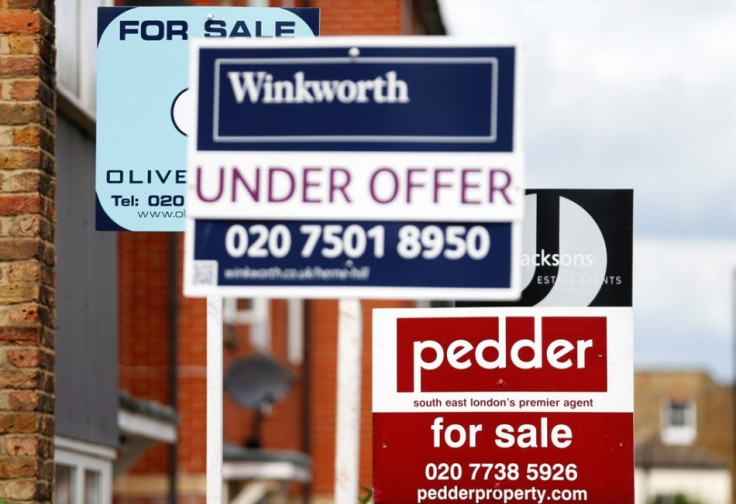Why UK House Prices are Rising Sharply

Unless you're a hermit, it's unlikely to have escaped your attention that there's something going on in the UK's housing market.
House prices in all regions of the UK are on the rise again. The average price of a home, according to Nationwide, has hit £178,124. In London alone it's £362,699.
And now there's talk of a new property bubble being blown. But why? IBTimes UK explores.
Mortgages are easy to get hold of again.
Thanks to credit easing schemes such as Help to Buy and Funding for Lending, more people are able to get their hands on mortgages because of smaller deposit requirements and lower rates.
What's more, the Bank of England's record-low base rate of 0.5% has helped keep a lid on mortgage repayment costs.
And the UK economy is recovering, meaning banks are more inclined to lend and consumers are in a better position to borrow.
Bank of England figures show mortgage approvals following an upward trend for some time, currently running at levels of over 70,000 a month.
We're not building anywhere near enough homes.
Yes, the construction sector is recovering alongside the wider domestic economy. And yes this recovery is largely driven by a sharp increase in residential house building because of higher demand for new homes.
But the amount of new homes being built is still far short of government estimates on what the UK needs each year as a growing population puts more and more strain on the housing supply.
According to the National House Building Council (NHBC), the volume of new homes registered was 133,670 in 2013 - a 28% leap on the year before.
However, the government's National Housing and Planning Advice Unit says the UK needs 290,500 new homes annually until 2031 if it is to meet current demand.
It's a fundamental rule of markets. When there is greater demand for something than there is supply of it, its price will rise.
London's housing market is crazy.
The headline house price growth figure for the UK is somewhat distorted by what's going on in London.
The English capital is a cocktail of severely limited supply and enormous demand as people flock both internally and from overseas to the UK's economic powerhouse, where jobs are plentiful and the pay is better.
What's more, wealthy foreign investors in so-called "prime" London property, for who money is no concern, plough their cash into the competitive market for the city's high end homes.
The resultant eye-watering prices spill over into neighbouring areas, driving up house prices elsewhere in London.
Nationwide, the building society, said that London's house prices were 18.2% higher in the first three months of 2014 than they were a year before. That compares with 9.2% growth on average for the UK as a whole.
There were 19,840 new housing starts during 2013 in London. Demand is so high in London against a limited supply, that a report by Hometrack found over 99% of the property sales saw the asking price achieved. This compares with 93% elsewhere in the UK.
Is it a good thing that prices are rising again?
If you own a home then yes. For those in UK regions where house prices fell sharply after the financial crisis it may be a chance to climb out of negative equity.
For others it's an appreciation in value of their main asset, which may mean they can move to a better house or downsize and cash in.
But it pulls the property ladder's bottom rung up higher for those trying to make their first step onto it. Higher prices mean bigger deposits, mortgages and monthly repayments.
Still, despite prices rising in all UK regions again, most are still below their 2007 peaks.
But that won't stay the case for much longer with no sign that the demand/supply imbalance will be meaningfully addressed in the near future.
© Copyright IBTimes 2025. All rights reserved.






















